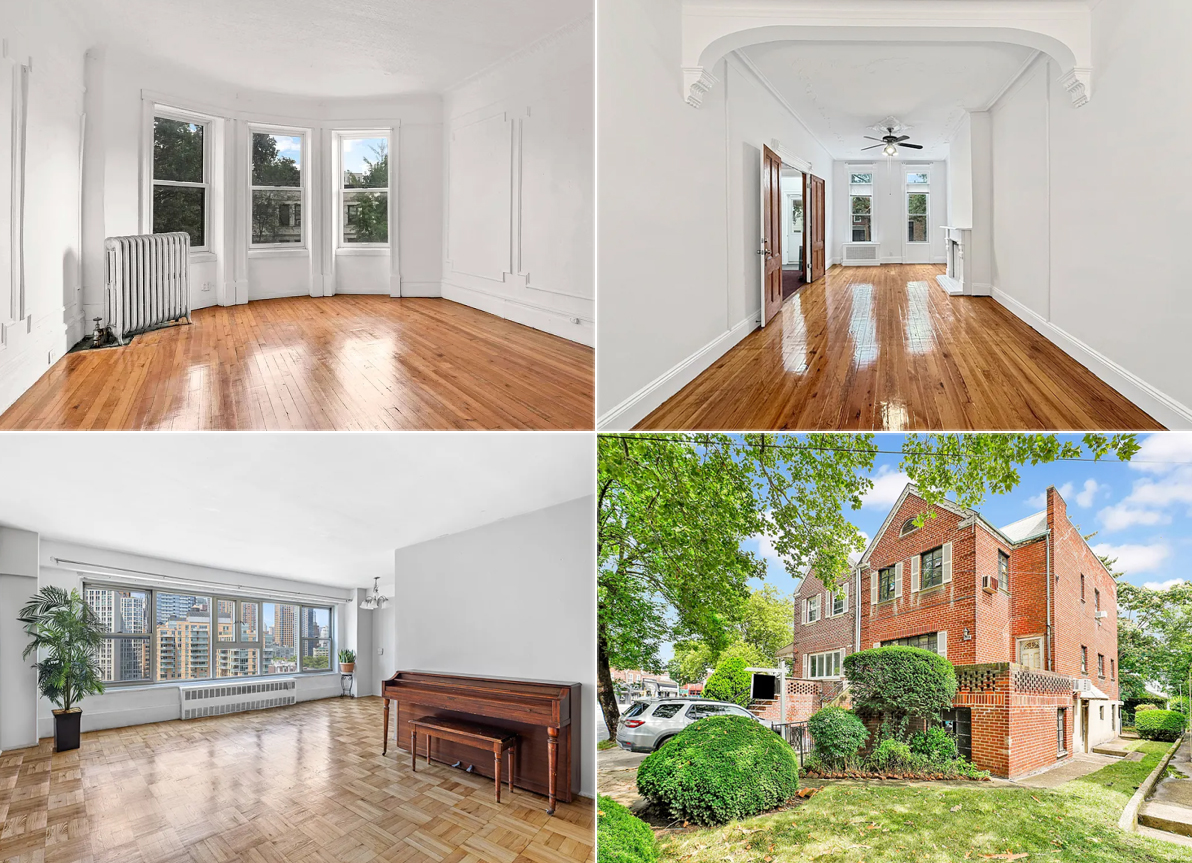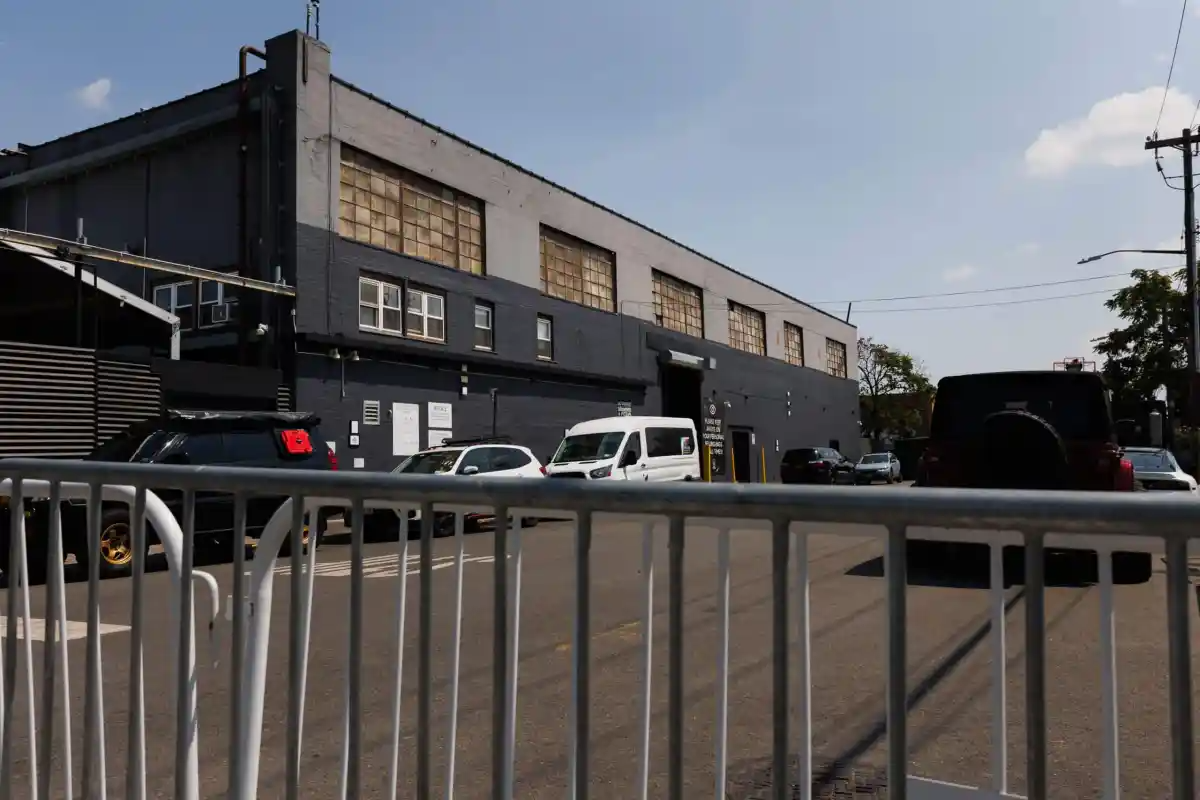W'Burg Builders Sue, Say Rezoning Like Eminent Domain
Rezoning and eminent domain (and landmarking) have been the hottest topics in Brooklyn development over the years, and a group of Williamsburg property owners are saying they’re one in the same. Dozens of property owners affected by last week’s Grand Street rezoning are preparing to sue the city, as detailed in The Real Deal. The…
Rezoning and eminent domain (and landmarking) have been the hottest topics in Brooklyn development over the years, and a group of Williamsburg property owners are saying they’re one in the same. Dozens of property owners affected by last week’s Grand Street rezoning are preparing to sue the city, as detailed in The Real Deal. The owners charge the proposal was ramrodded through the approval process to prevent their participation. One petitioner said eminent domain is almost better. “The government is required to compensate you for the loss at some sort of market rate,” he said. “Whereas in zoning … there’s no requirement for compensation and a very limited requirement for notice.” John Isdith and his father, Carlos, pictured above, are among dozens of small-time developers who, now forced to reduce their project, said they’re considering joining the suit. Do the two have similarities? Which is more unfair—downzoning or eminent domain?
Williamsburg Developers, Homeowners to Sue City [TRD]
Council Green-Lights Grand Street Rezoning [Brownstoner]





In a “taking” something has to be taken. Nothing was “taken” here. The law changed. How is that different from the market changing?
I don’t understand the logic of the anti-zoning claim here. The property has value ONLY because of its neighbors, NYC’s zoning history, NYC’s creative and financial industries, etc.
Why should one individual have a right to free-ride on that benefit over the objections of his/her/its neighbors as expressed through the usual political process?
Eminent Domain is a kind of tax — one person’s property taken for the benefit of others. But zoning is just a determination of what your property rights are in the first place. It’s no different than the (partial) right to exclude others with police assistance.
This particular zoning rule may or may not make sense– I don’t know the neighborhoods. But the notion that someone has a sacred right to exploit the former zoning law and to be paid for changes is absurd, (unless of course developers intend to pay for upzoning and the city resources on which they freeload).
2:55 – I’m not sure that Kelo really made such a monumental shift – plenty of precedent prior was on that side of the fence.
Besides – how can an Arena for mass entertainment not be considered a public use? – Surely it can’t all hinge on who owns the deed – remember the NY City Subway system was originally built by private for profit corporations.
I’m sorry but I don’t how one can intellectually oppose ED (as broadly as the anti-AY folks do) and yet be in favor of (or not equally oppose) totally uncompensated “takings” of property rights like in a downzoning.
What we need is for us working stiffs to take some time off from work and harass the geriatric/trustfund crowd (like Goldstein) that infests these “community” boards.
I’d advise getting drunk first – it’s the only way to tolerate the insanity.
Rereading my post (2:46), I guess what Kelo did was to shift the bar from “public use” to “public benefit”. The 5th Amendment clearly says public use, and Kelo was not for a public use. But because of issues like increased tax revenues, the court found it to be constitutional.
The Supremes have defined “public benefit” pretty far down, in my opinion. Kelo was a public taking for a private development; the “benefit” was an increased tax base. In other words, there no longer needs to be a direct benefit to the public at large, as in a park.
Semantics, maybe, but ED IS a complete taking (the property and all rights to it are taken in their entirety). The compensation is what makes the full taking constitutional. The 5th Amendment “…nor shall private property be taken for public use without just compensation”. Also, “just” compensation and “full” compensation are two very different things.
Because zoning is not a complete taking, it does not require compensation to steer clear of 5th Amendment. The zoned property owner loses some, but not all rights. And sometimes, they lose no rights, which raises an interesting question – should we compensate the “losers” from the pockets of the “winners”?
This is Nimby through and through… No reason for the down-zoning at all. The area is so convenient to all of Manhattan via 2 different trains that are only one stop away. The people of the city deserve the housing.
As an owner of a very large condo, it does in theory increase the value of my property by limiting supply, but I find this down zoning to be unethical and illegal, and cannot support.
Loathe this sort of thinking.
ED simply for private development is prohibited – it is only permitted to convey a legitimate “Public benefit” – of course the ultimate (and often subjective) definition of what is a “public benefit” is the $100,000,0000 question.
And ED is not a “complete taking” either – you must be justly compensated (which one does not receive in a taking like a downzoning)
1:47 here. I meant to say without a presentation by the applicant to the full community board at a public hearing. The applicant does present to the committee at a public meeting.